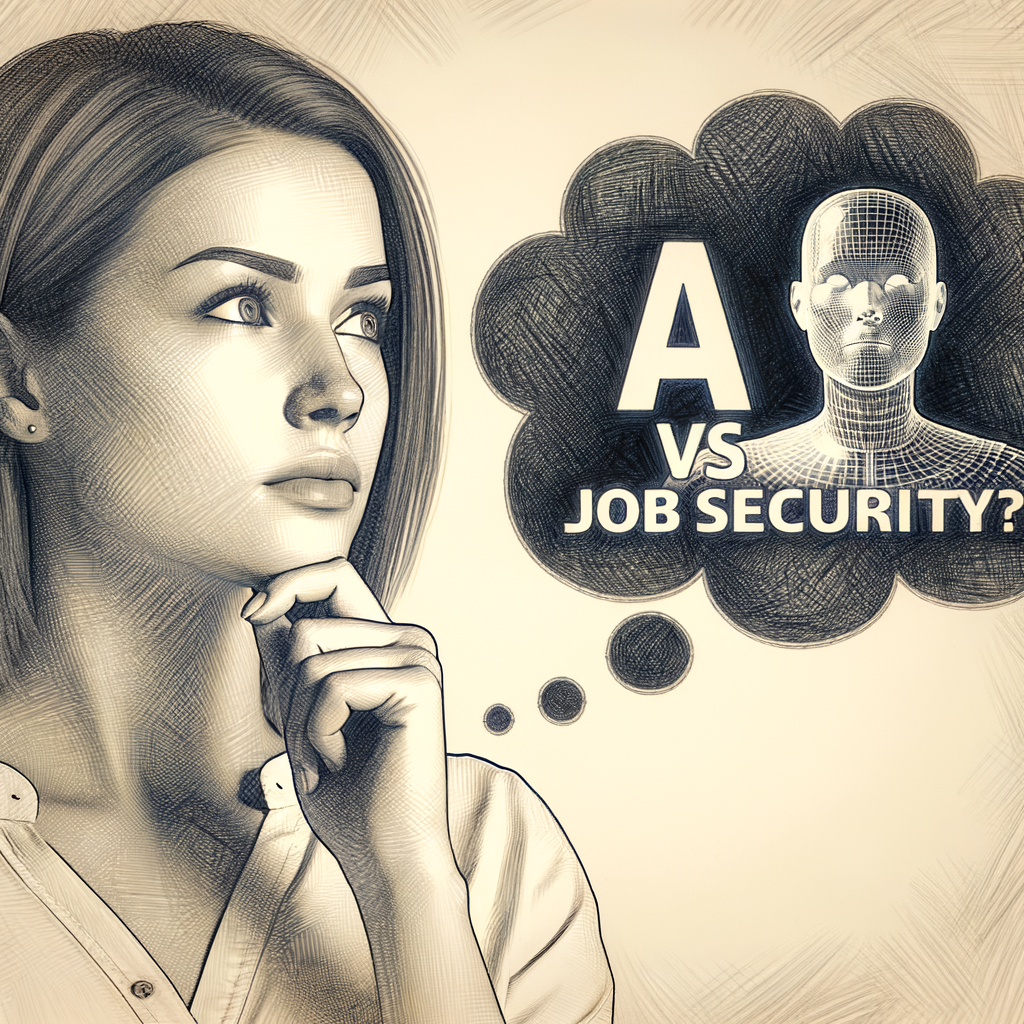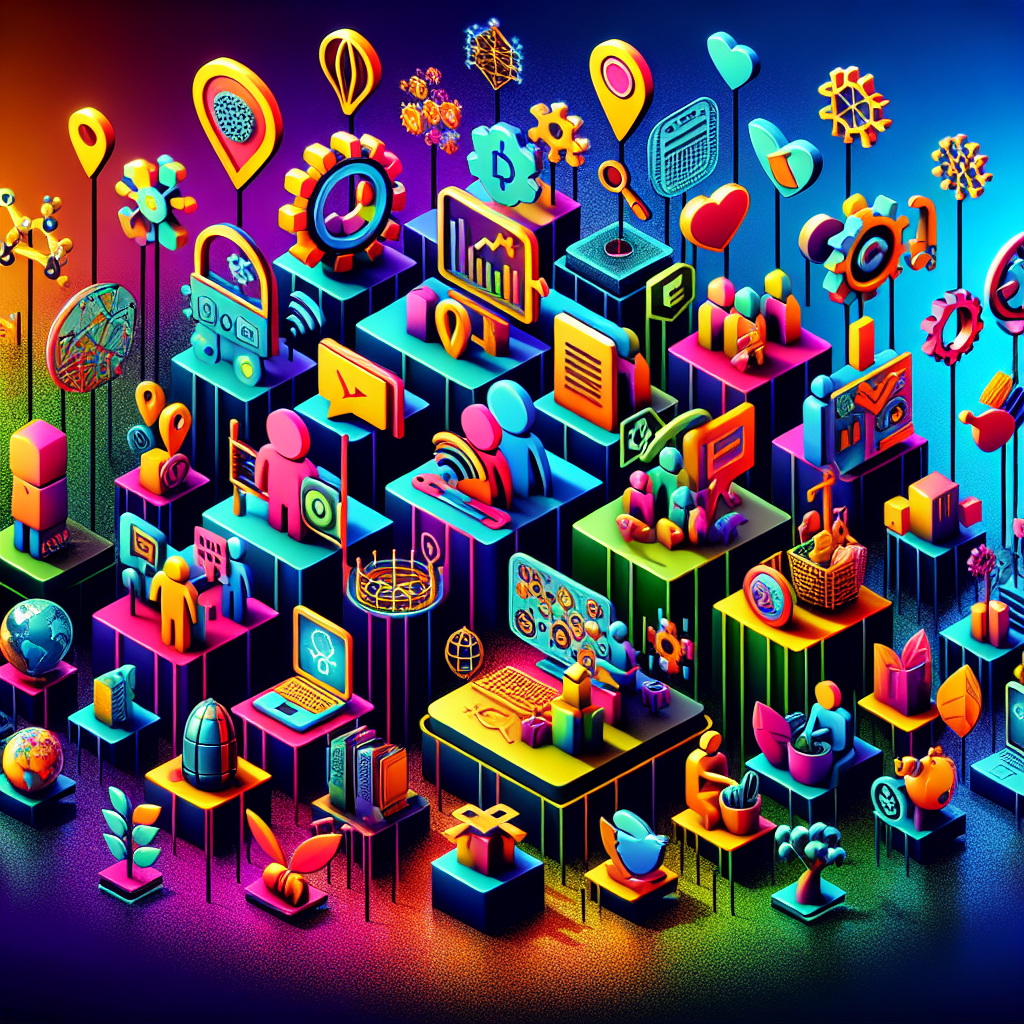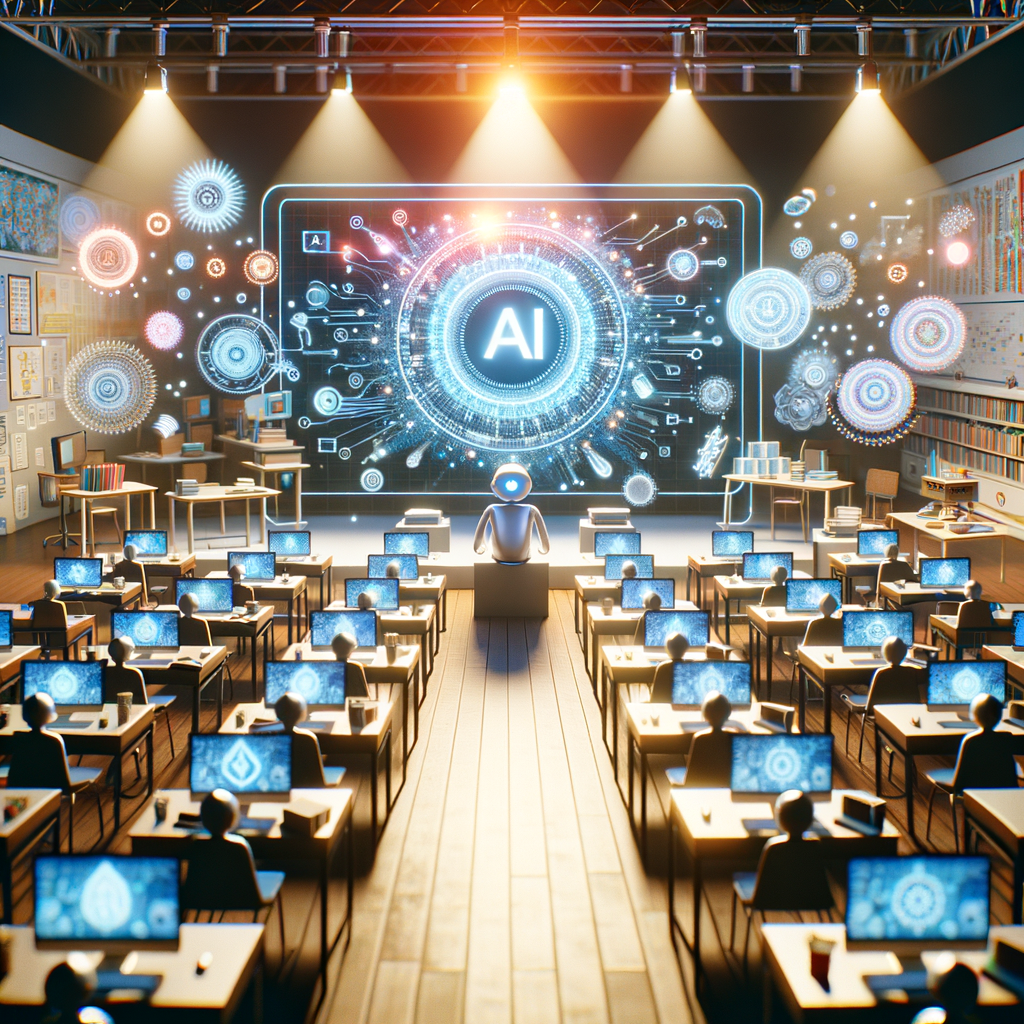
Challenges such as ethical concerns, data privacy, and technological barriers are also discussed. The article concludes by exploring future trends, offering practical tips for educators, and providing expert insights on AI’s potential to transform education in the years ahead.
- 1. Introduction
- 2. Understanding Generative AI
- 3. Current Applications in Education
- 4. Case Studies
- 5. Challenges and Considerations
- 6. Future Trends and Innovations
- 7. Expert Insights
- 8. Conclusion
- 9. FAQs
1. Introduction
Generative AI is revolutionizing the education sector by introducing innovative ways to enhance learning experiences. As technology continues to evolve, AI-driven tools are becoming integral in classrooms around the world. This article explores how Generative AI is reshaping education in 2024 and the implications for the future of learning.
2. Understanding Generative AI

Definition of Generative AI
Generative AI refers to artificial intelligence systems capable of creating content, such as text, images, or audio, based on input data. Unlike traditional AI, which follows pre-defined rules, generative AI uses algorithms to generate new, original outputs.
How Generative AI Works
Generative AI models, like GPT-4, leverage vast amounts of data and sophisticated algorithms to produce content. They analyze patterns in existing data and use this knowledge to generate relevant and contextually appropriate responses or creations.
Historical Development and Advances
The field of Generative AI has rapidly evolved from basic rule-based systems to advanced neural networks capable of creating complex and nuanced content. Key milestones include the development of models like GPT-3 and the recent advancements in multimodal AI, which combine text, image, and audio processing.
3. Current Applications in Education
Personalized Learning Experiences
Generative AI enables personalized learning by adapting content to individual student needs. AI-driven platforms can analyze a student’s progress and tailor lessons to address their strengths and weaknesses, providing a customized educational experience.
AI-Powered Tutoring Systems
AI-powered tutoring systems offer students immediate feedback and support. These systems use generative AI to provide explanations, answer questions, and offer additional practice problems, enhancing the learning process outside the traditional classroom setting.
Content Creation and Assessment Tools
Generative AI assists educators by generating quizzes, assignments, and even grading assessments. This automation reduces the administrative burden on teachers and allows them to focus more on interactive teaching and student engagement.
4. Case Studies
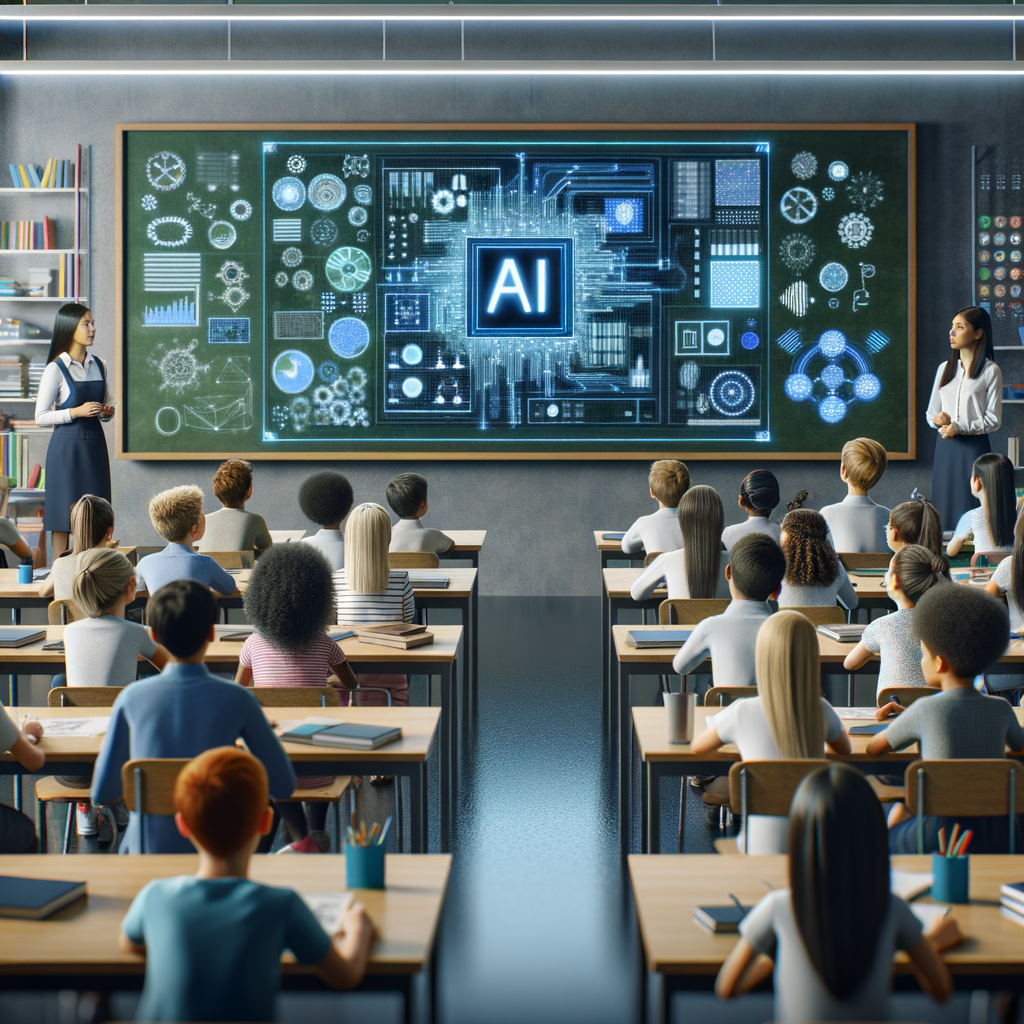
Successful Implementations in Schools
Several schools have successfully integrated Generative AI into their curricula. For example, AI-driven platforms have been used to create interactive learning modules and provide real-time support to students during lessons.
Impact on Student Performance and Engagement
Studies have shown that students using AI-based learning tools exhibit improved performance and higher engagement levels. Personalized feedback and tailored learning materials help students grasp concepts more effectively and stay motivated.
5. Challenges and Considerations
Ethical Concerns
The use of Generative AI in education raises ethical issues, such as the potential for biased content and the implications of AI making educational decisions. It is crucial to address these concerns in order to ensure fair and equitable learning environments.
Data Privacy Issues
Generative AI systems often require access to large amounts of student data. Ensuring the privacy and security of this data is essential to protecting students' personal information and complying with regulations.
Technological and Accessibility Barriers
Not all educational institutions have the resources to implement advanced AI technologies. Addressing technological disparities and ensuring accessibility for all students are key challenges that need to be overcome.
6. Future Trends and Innovations

Emerging Technologies and Tools
The future of Generative AI in education will likely see the development of more sophisticated tools, including enhanced virtual reality experiences and more accurate predictive analytics for student performance.
Predictions for AI's Role in Future Education
Experts predict that AI will become increasingly integrated into educational systems, providing even more personalized and interactive learning experiences. Innovations such as AI-driven lesson planning and adaptive learning environments are on the horizon.
Practical Tips for Educators and Institutions
Educators and institutions can prepare for the future by staying informed about AI advancements and exploring pilot programs to assess the effectiveness of new technologies. Collaboration with tech developers and ongoing professional development will be crucial.
7. Expert Insights
Interviews with Education and AI Experts
Interviews with experts highlight the transformative potential of Generative AI in education. Insights from educators, AI researchers, and technology developers provide valuable perspectives on the benefits and challenges of AI integration.
Quotes and Opinions on AI’s Impact
Quotes from thought leaders emphasize the positive impact of AI on education, including its ability to enhance personalized learning and support diverse educational needs.
8. Conclusion
Generative AI is poised to revolutionize education by offering innovative solutions to traditional teaching methods. As technology continues to advance, it is essential to address ethical, privacy, and accessibility issues while embracing the opportunities AI provides. The future of education promises to be more personalized and engaging, driven by the power of Generative AI.
9. FAQs
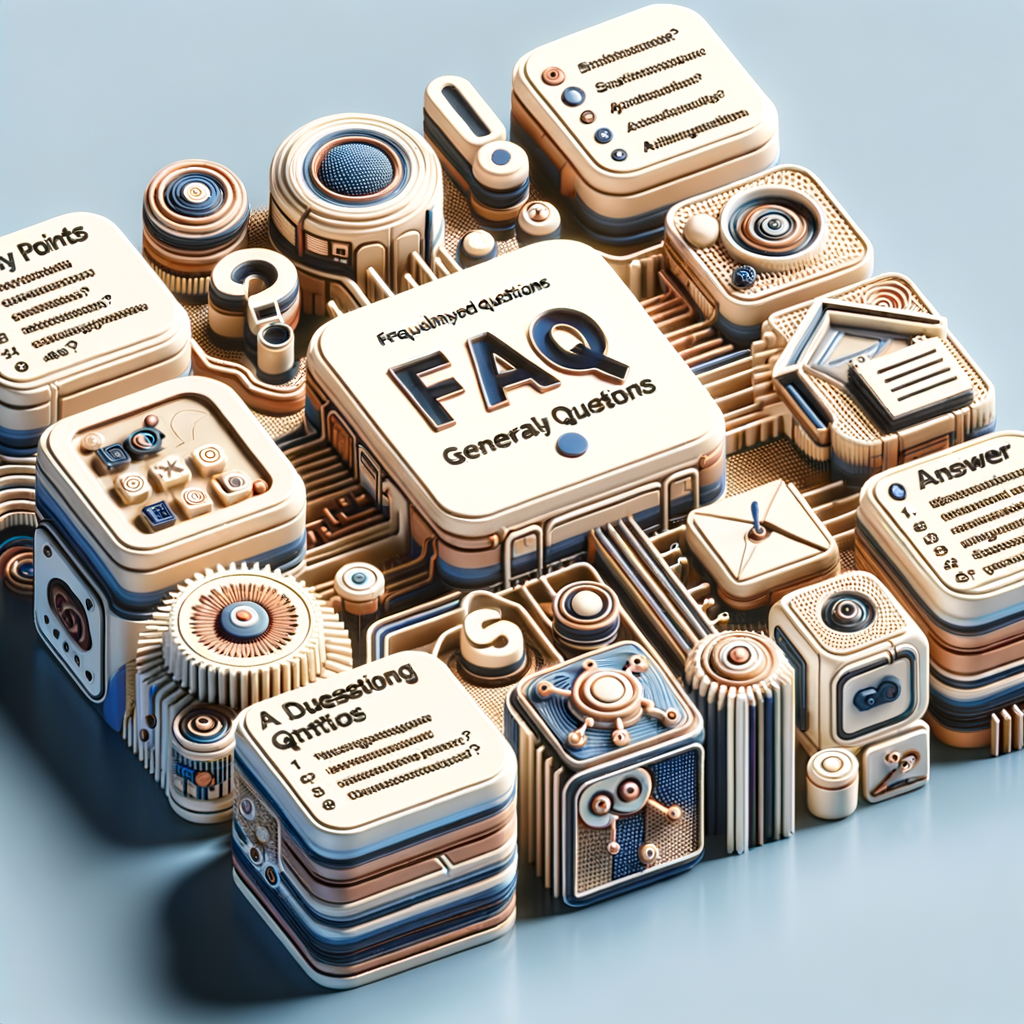
What is Generative AI?
Generative AI is a type of artificial intelligence that can create new content, such as text, images, or audio, based on patterns learned from existing data.
How does AI improve education?
AI improves education by offering personalized learning experiences, providing real-time tutoring support, and automating content creation and assessment.
What are the challenges of using AI in education?
Challenges include ethical concerns, data privacy issues, and technological and accessibility barriers. Addressing these challenges is crucial for successful AI integration in education.
